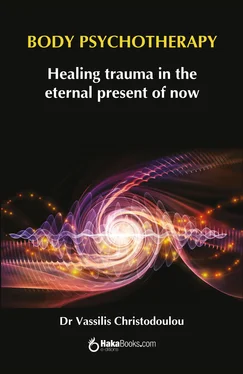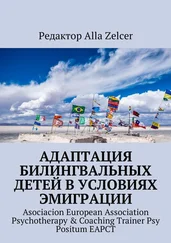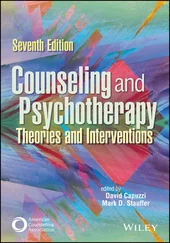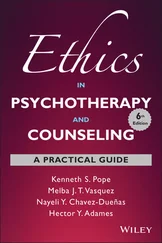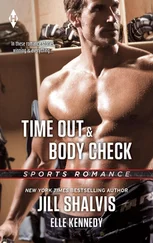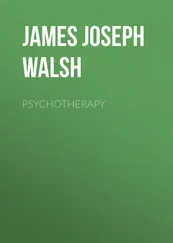Matter has a memory
The original cell of the human embryo develops at its own pace and with exceptional precision, and, in a miraculous fashion, from its three original layers – the outer layer (ectoderm), the middle layer (mesoderm) and the innermost layer (endoderm) – a whole body will develop. The harmonious way in which the body develops can be disturbed in such a way that the disturbances are not physically obvious. Just as we have obvious physical disabilities and disfigurements, so also do we have what are in most cases concealed ‘deviations’ from a harmonious and healthy development, which will emerge on certain occasions and under certain conditions. The most important thing to note here is that matter has a memory.
It is time for us to understand that every cell in our bodies stores information about the experiences we undergo, and this has nothing to do with time. This information, for the body’s purposes, is what we call memory. This memory keeps the cells and other parts of the body in a constant state of readiness, just like the state the body was in when it underwent the original experience: finding itself in danger, it placed all its systems on maximum alert in order to survive, which it succeeded in doing.
What happens at the cellular level when the body is exposed to danger? Exactly the same as what happens in the rest of the body: all of the body’s activities are scaled down so that it can focus on its defence. Very simply, it is true to say that anything that does not directly contribute to the body’s survival either ceases to function or underfunctions. When either of these things happens often, the body is prevented from functioning properly. The appearance of an illness is a visible effect of this mechanism.
An example of this is what happens to the immune system. When it ceases to tackle internal pathogenic organisms and mobilises its forces in order to defend the body against external threats, it does this to ensure survival. When, however, the body almost constantly senses the presence of an emergency or an almost permanent state of red alert, this leads to a drain on its energy resources and leaves its defences in an almost constant state of disorganisation. Then the body collapses at its most vulnerable point. The other important thing we must bear in mind when we deal with human beings as a whole is that information is energy.
A first acquaintanceship with the eternal present
A young female patient of mine once turned up for her therapy session in a particularly happy and cheerful mood, and jokingly described how she had come to buy something for herself that she had needed to get for a long time:
When my parents finally needed something of mine, they ‘discovered’ the thing I had been telling them about for ages. It was broken and needed to be replaced! Weren’t they listening to me when I spoke to them? What can I say? It seems that sometimes they don’t listen to me!
She was talking and laughing about the other things she had bought that day that were not so necessary and she was describing the wonderful morning she had spent with her mother. I was listening to her attentively and I was with her in what we call the ‘here and now’ of the therapy session. In this Now, when the therapist is completely focused on the patient, the connection between the two does not consist merely in the therapist listening carefully to the patient. Neither is it a connection between the subconscious of the one and the subconscious of the other. It is a much deeper somato-psycho-spiritual connection that involves the whole person. At such times the therapist can feel in his or her own body sensations experienced by the patient and when these are followed up, they open up new paths that can lead us to what I call man’s eternal present. The human body experiences and records everything only in the Present. Whatever is experienced in the therapy session is experienced at the same intensity with which it was originally recorded in the patient’s cellular memory.
In my case, the sensations I feel in the soles of my feet constitute a privileged route that will lead me to the experience of the other person – a person who is distinct from myself only on one level; on another level, that person is simply my other self. The pressure in my soles is like a sacred gateway that will lead me to the patient’s past traumatic experience, and it can lead to great pain, a pain that has remained unaltered in time, serving as an indisputable witness to the traumatic experience.
The young woman before me was shaking all over… It was clear that she was afraid, yet she had still not established a connection with the emotion that she was experiencing. When I asked her how she was feeling, at first she replied that she did not know. A short while later, however, she realised what was happening to her. She was afraid and the fear was paralysing her to the extent that she could not breathe. When I put my arms around her and she felt the security of my presence, she said:
Oh my God, I’m three years old, perhaps even younger, and I’m in the hall… they’re quarrelling… they’re quarrelling and they’re not taking any notice of me…
In this particular case the key that broke down the barrier of time – or rather, as I see it, unified time – and brought what was in the subconscious into the conscious mind, was the patient’s statement that ‘they're not taking any notice of me’, her feeling that she was being ignored.
They don’t care that I’m watching them… I feel afraid.
She was breathing with even greater difficulty, she felt as if she was suffocating and could not cry. Fear was preventing her from crying and breathing properly. The three-year-old infant was so afraid that she could not even express what she was experiencing by crying and this was why she felt as if she were suffocating… Only when she felt my secure embrace was she able to release her tears, to sob and to give vent to her grievances.
Why, oh why, oh why?
Now, in a secure environment, she could release her pain, her tears and the feeling of suffocation. This young woman had completely forgotten this incident with her parents, yet today whenever she recalls such painful experiences, she is able to overcome them, recognising the love and care that she now receives from her parents. Typically, in this case, the body, its organs and every cell in the body had preserved the experience and the information intact: the information that ‘my survival is being threatened’ and the protection provided by the body’s contraction in response to the perceived threat had remained unaltered through time.
The accumulation of such toxic residues merely as memories does not cause emotional problems or disorders. Often, I must say, not even a memory of an experience exists, in the sense of a mental recollection. It is a shame: most people lose their inner equilibrium and die without really having had the chance to consciously choose the path to healing. This is why if we want to help and to heal a person, we should constantly ask ourselves the question ‘WHAT IS MAN?’ We have our accumulated knowledge and we use this to guide us as we go along but we should never, never use it as a fortress and entrench ourselves behind the security of our knowledge and experience.
Experiences which remain in the cells as pieces of information, keeping them in a state of alert, cause changes which in the course of time can manifest themselves as purely physical illnesses. Consequently, what causes the illness is not the mental recollection of the experience but the relevant memory and information, as it has been recorded in every cell of the body. In terms of energy consumption, the cost of keeping this painful information ‘away’ from us is enormous. We exchange one kind of pain for another. Most kinds of chronic physical pain stem from this unconscious exchange.
Читать дальше
